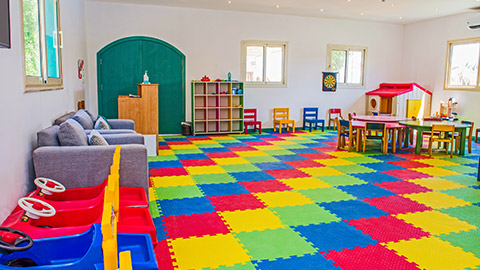Welcome to Legislation and Ethics in Practice.
In this module, we'll look at Aotearoa's governing legislation in the ECE sector. This includes health and safety measures around wellbeing and the ethical practices and considerations that will become an important part of your role as kaiako.
We'll go over our sector's Models of Health to incorporate holistic wellbeing into your daily routines — both your own and those in your care. By taking care of yourself, you are able to look after whānau and tamariki. Holistic wellbeing means looking at health as a whole being — mind, body, and spirit.
Holistic: dealing with or treating the whole of something or someone and not just a part.
A daily stretching ritual is a good idea to support your wellbeing.

Activity - Putting on your own oxygen mask
If you have flown on a commercial flight before, you will have heard the safety protocol: "Put your own oxygen mask on first before helping others." We must do this to ensure we are healthy enough to help others. If we can't breathe, we will be gasping for air, unable to assist. However, if our needs are met, we are in a good position to support those around us.
The same applies in our everyday lives, and it is often something we struggle with, especially those who always put others first. Being in ECE — it's likely you are one of these people — so it is important to make sure you are taking care of your own holistic wellbeing, so that you can feel strong and you are able to help others.
As online learners, you may find you don’t have much time to give just to yourself — splitting time between work and studies, family responsibilities and social events — but it's the best way to support yourself so you can support others.
Take a moment and think about what it would mean for you to 'put your oxygen mask on'. Here are some ideas to get you started.
- Start or ensure you make time for a short, daily yoga practice.
- Be mindful while having your morning cuppa. Just sit with it and enjoy the peace and quiet.
- Ensure you include short bursts of movement throughout the day (incidental exercise).
- Take some time to give love and cuddles to a pet.
- Keep in mind, that it may be enticing to chill out on social media, but research shows that time spent scrolling social media can actually be harmful to your wellbeing, rather than self-care time. Consider a game on your phone that you enjoy rather than risking the content you find on Facebook, Instagram, or TikTok winding you up, rather than down.
- What can you add to this list? It's very personal to you and what you enjoy doing.
Sitting in one place for a long time is neither good for your body nor your mind. We've provided this little bit of holistic wellbeing just for you. How about jumping up and doing it right now?!
Hint (if you have a YouTube account): Click watch later on the video, and it will appear in your library at YouTube, so you can return to it as often as you like.
5-minute stretch for working at your computer.
We hope you will enjoy this module and fully participate in the exercises so that you get the most out of it for the sake of your own wellbeing and the tamariki in your care.

Legislation is a law or set of laws suggested by a government and made official by a parliament.
As you may already know, Education (Early Childhood Services) Regulations 2008 is the primary item of legislation that ensures the health, wellbeing, and safety of tamariki in Early Childhood Education in New Zealand.
Legislation is one of the most important instruments of government in organising society and protecting citizens. It determines, amongst others, the rights and responsibilities of specific individuals and authorities.
Ethics are moral principles that govern a person's behaviour or the conducting of an activity.
Ethics are based on well-founded standards of right and wrong that prescribe what humans ought to do, usually in terms of rights, obligations, benefits to society, fairness, or specific virtues.
We all have our own personal ethics that we live by — what we consider wrong or right, how we treat people and approach life.
The Office of Early Childhood Education (oece.nz) sets out a code of ethical conduct that outlines the standards of conduct every family who enrols with our service can rightly expect of us and what is expected of every service in the early childhood sector. This is done by acknowledging and upholding the United Nations Convention on the Rights of the Child and Te Tiriti o Waitangi as Aotearoa/ New Zealand’s founding document.
Activity – Code of Ethical Conduct
- Read through The Code of Ethical Conduct (PDF) from The Office of Early Childhood Education.
- In your own words, describe the key points of each section and provide example activities and practices showing what you can do to support the ideas in each section.
- Complete this template and keep it as a resource for work and assessments.
Office of Early Childhood Education | Code of Ethical ConductA strong ethic of care – Compliance - Professionalism - Accountability and transparency

